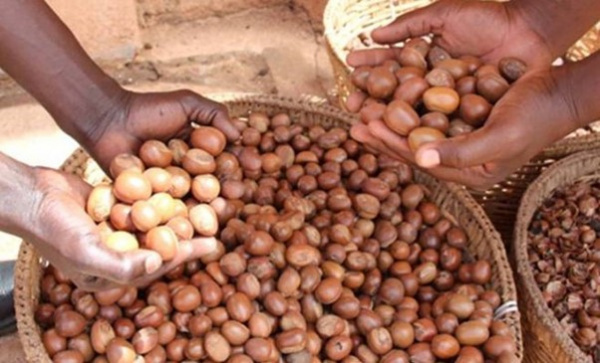
Togo, 7th Largest Producer of Shea Nuts, Suspends Exports to Strengthen Local Processing Industry

Togo has suspended the export of shea nuts and shea kernels to address a shortage of raw materials for local processing units. The decision, announced by the Ministries of Trade, Economy, and Agriculture, aims to increase domestic processing capabilities and support the country’s industrialisation strategy.
Despite housing 10 processing units, Togo’s annual shea nut production of approximately 40,000 tonnes falls short of meeting the demands of these facilities.
According to Togo First, major processors such as Nouvelle Industrie des Oleagineux du Togo (NIOTO) and Label d’Or can process 35,000 and 10,000 tonnes of shea kernels annually.
On average, Togo exports about 25,000 tonnes of shea annually, accounting for roughly 5 per cent of West Africa’s shea exports and 8 per cent of global shea nut shipments, making it the third-largest exporter. The country ranks as the world’s seventh-largest shea producer, contributing approximately 1.66 per cent of global production as of 2022.
In July 2023, Togo announced a CFA3.1 billion investment plan for its shea sector from 2024 to 2028. The plan focuses on enhancing production through sustainable management and tree planting, professionalising the industry, improving product quality, and investing in research and development.
Funding is expected from financial and technical partners, the state, and the local shea industry organisation CIFKAT. Notably, women constitute approximately 84.9 per cent of the workforce in Togo’s shea sector.
This suspension aligns with Togo’s broader industrialisation strategy, which seeks to increase local production and processing capacities, thereby capturing more value domestically and reducing reliance on external markets.
The move mirrors similar actions in the region; for instance, in September 2024, Burkina Faso temporarily halted shea nut exports to support its local processing industry and promote economic growth.
Read More:
- Togo, Burkina Faso to Sign Free-Roaming Agreement to Reduce Communication Costs For Travellers
- “We’re in a Popular, Progressive Revolution, Not a Democracy” — Burkina Faso’s President Traoré
About The Author
%s Comment
Leave a Reply Cancel reply
Related Articles
Burkina Faso: President Traoré Grants Sentence Reductions to 963 Prisoners
Burkina Faso’s President, Captain Ibrahim Traoré, has approved sentence reductions for 963...
ByIkenna ChurchillJanuary 15, 2026Mali: Goïta Announces National Consultations on Political Party Reform in 2026
Mali’s transitional president, General Assimi Goïta, has announced plans to launch national...
ByWest Africa WeeklyJanuary 15, 2026Mali: Fresh Terrorist Attack Hits Industrial Sites in Bafoulabé
A new armed attack struck the Bafoulabé district in Mali’s Kayes region...
ByWest Africa WeeklyJanuary 15, 2026Niger Revokes Licences of Drivers Who Refused to Deliver Fuel to Mali Amid Jihadist Attacks
Niger has revoked the licences of dozens of transport operators and drivers...
ByWest Africa WeeklyJanuary 15, 2026












Dear Editor
Please I would like to get your publication as I would like to have my email address added to your list
Thank you